Why this Invictus Games will be the making of Prince Harry

Like many great ideas, it started somewhere between inauspicious and accidental.
It was March 2008, and a young army officer was flying home from Afghanistan: not because he wanted to but because he’d been ordered to. As he stewed, he saw a curtain at the front of the plane blowing open slightly. Beyond it were three comatose soldiers wrapped up in what looked like clingfilm and with bandages round the stumps of missing limbs. It was the first time this officer had seen seriously injured men, and the sight rattled him somewhere deep within himself.
That officer was Prince Harry.
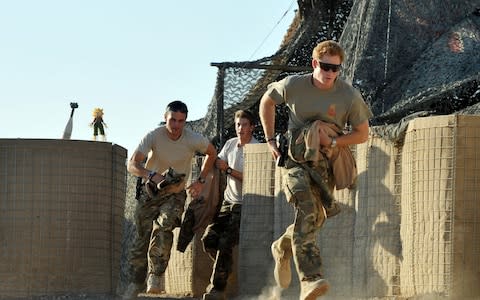
He didn’t know it at the time, but he had sown the first seeds of what would eventually blossom into the Invictus Games, a multi-sport event for wounded, injured and sick service personnel whose third edition begins in Toronto on Saturday.
First came London 2014, then Orlando 2016. Next year will be Sydney. But right now all eyes are on Toronto, particularly given the worldwide interest in Harry’s relationship with California-born ’Suits’ actress Meghan Markle. The speculation about whether an engagement announcement is imminent will irritate Harry, who has put his heart and soul into the Games - this years being the biggest yet.
He will want people to concentrate purely on the competitors - more than 550 of them from 16 nations competing in 11 adaptive sports. They’ve lost limbs, suffered crippling injury, battled cancer, dealt with post-traumatic stress, and any number of other physical and mental ailments. For every competitor there, it’s the start line rather than the finish line which is the real achievement, an achievement which Harry will consider far more worthy of comment than the status of his relationship.

For the Invictus Games – ‘invictus’ is Latin for ‘unconquered’ – are not just Harry’s brainchild. They are his baby through and through: forged not perhaps strictly in his own image but certainly according to his own values. They are fiercely competitive, but they’re also fun. They give a voice to the damaged and the forgotten, just as he has done with the Sentebale charity in Lesotho for orphans and vulnerable children. And they leave no man or woman behind: there are gold, silver and bronze medals, but also medallions for every competitor.
‘Sport is surely the best way to support recovery of mind and body,’ Harry said in 2014. ‘The premise is simple: set yourself a target, take your mind off all the negative thoughts and concentrate on the challenge in front of you, all while relearning to use your body.’
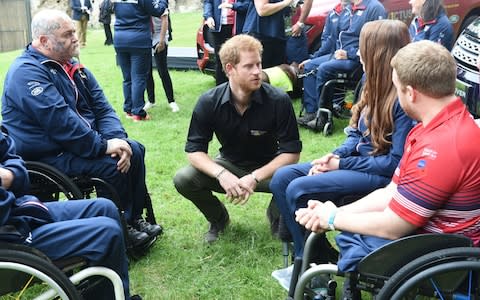
Someone battling the daily fires of post-traumatic stress or the difficulties of life as a triple amputee is not suddenly going to find themselves cured by competing there, but the experience could help them on their path back to as normal a life as possible. The Games have mental and social benefits as well as physical ones. After talking to the competitors, it’s clear they fill the void which so many service personnel experience when they’re forced to retire. They offer, if only for a few days, the things which many have been missing: their country’s flag on their chest or left arm, being part of a team, the quickfire dark humour, the camaraderie. It gives them that military fix which they yearn for.
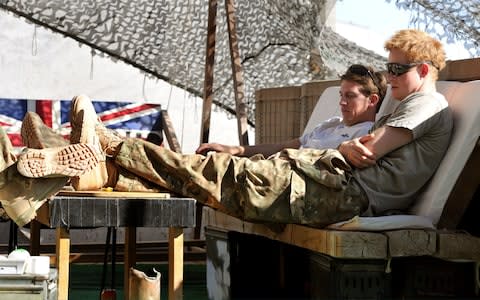
And Harry himself knows all this, feels all this. The army gave him what he’d always sought, the chance to prove himself. His fellow soldiers accepted him for the man he was rather than the title he bore: for the first time in his life he was treated as a normal bloke rather than anyone special. And he was good at his job. On his second tour of Afghanistan in 2012–13, he co-piloted Apache helicopters, something only the very best pilots in the Army Air Corps (AAC) get to do.
Lt Col David Meyer, who oversaw Harry’s extensive training before that deployment, said: ‘Harry’s [preparatory training] course was incredibly well-galvanised and they tended to galvanise around him. That was one of his key strengths, as he wasn’t better than anyone else at flying or anything like that, but he just understood the whole team ethic, how to win together.’
Could there possibly be a better description of what the Invictus Games are all about?
Moreover, it was his army experience which helped him get through the ‘two years of total chaos’ he suffered in his late twenties while still struggling to come to terms with the death of his mother, Princess Diana. In April this year, he told the Telegraph’s Bryony Gordon that his work with the personnel recovery unit, where he listened to servicemen and women talk about mental health issues, had proved a turning point in his understanding.
'I know there is huge merit in talking about your issues and the only thing about keeping it quiet is that it’s only ever going to make it worse,' he said. 'Not just for you but everybody else around you as well because you become a problem. I, throughout a lot of my twenties, was a problem and I didn’t know how to deal with it.'
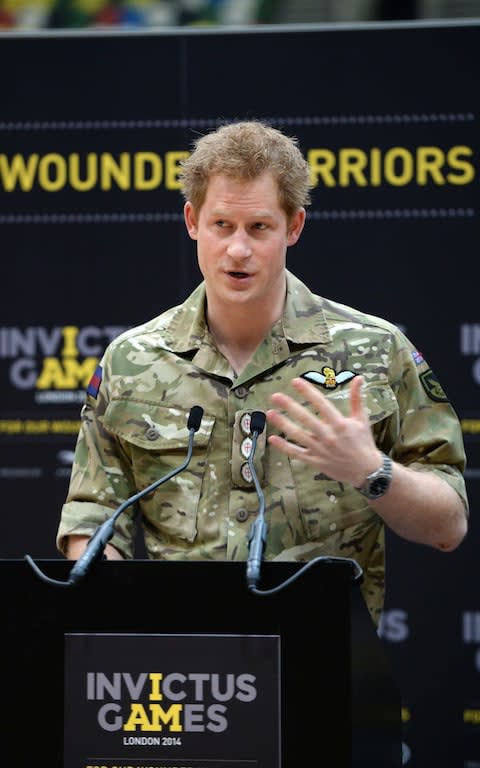
While writing UNCONQUERABLE: THE INVICTUS SPIRIT, I spoke to dozens of people. Not one of them had a bad word to say about Harry. He’s genuinely interested in people: he wants to know their stories, he wants to know what makes them tick. He looks out for them. His emotional intelligence is extraordinary.
Mike Goody, who lost a leg in Afghanistan and swam in the 2014 and 2016 Games, said: ‘Harry was an absolute legend. He was everywhere. He was literally boosting everything, pumping everything, getting everyone going, really encouraging.’ And multiple sclerosis sufferer Mary Wilson, athletics team captain in 2014, said: ‘I told him, ‘your mum would be proud of you.’

The men and women who compete at the Invictus Games could do amazing things for our society, if only we let them. Harry’s final remarks at Orlando 2016 were addressed to the competitors, but they apply to all of us. Here we have a group of people who have something to teach us - if only we will listen. The Invictus spirit is there for anyone who chooses to take it. ‘You are all Invictus. You are now ambassadors for the spirit of these games. Spread the word. Never stop fighting. And do all you can to lift up everyone around you.’
UNCONQUERABLE: THE INVICTUS SPIRIT is published by HarperCollins (£14.99). To order your copy for £12.99 plus p&p call 0844 871 1514 or visit books.telegraph.co.uk. Boris Starling will be speaking about the book at the Bridport Literary Festival on Remembrance Sunday, 12th November. Tickets from 01308 424901 orwww.bridlit.com

Five to watch in Toronto.
Lamin Manneh
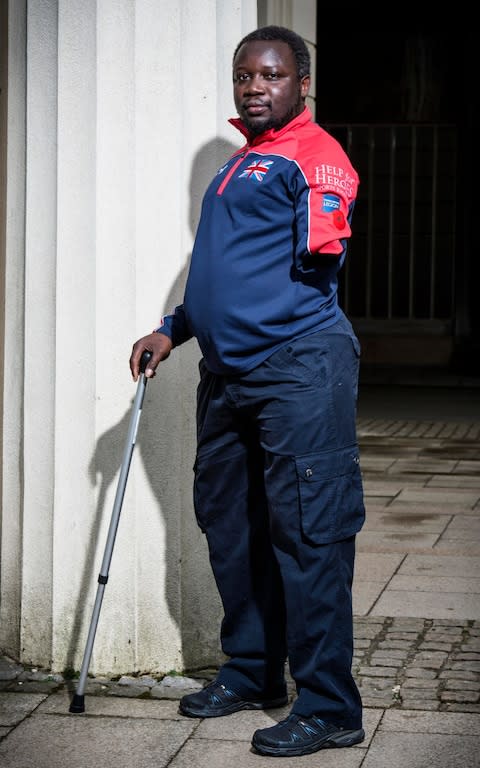
A former Guardsman who lost both legs and an arm in Afghanistan. Competing in sitting volleyball, rowing and athletics. ‘The Games have inspired many other people to have a sense of self-belief - that nothing is impossible if you commit to it.’
Michelle Partington
A former RAF paramedic who was diagnosed with Post-Traumatic Stress Disorder. Competing in rowing and powerlifting. ‘Invictus has given me a fire back in my belly, helping me physically and mentally.’
Dave Sandles
Veteran army Corporal who has lived with a spinal cord injury for 22 years. Competing in cycling and rowing. ‘The Games shows that people with my type of impairment are capable of so much.’
Michelle Turner
An RAF Sergeant whose heart condition had largely confined her to life indoors. Competing in rowing, powerlifting and swimming. ‘I’m on a journey that is making me do things I never thought I’d do again.’
Charlie Walker
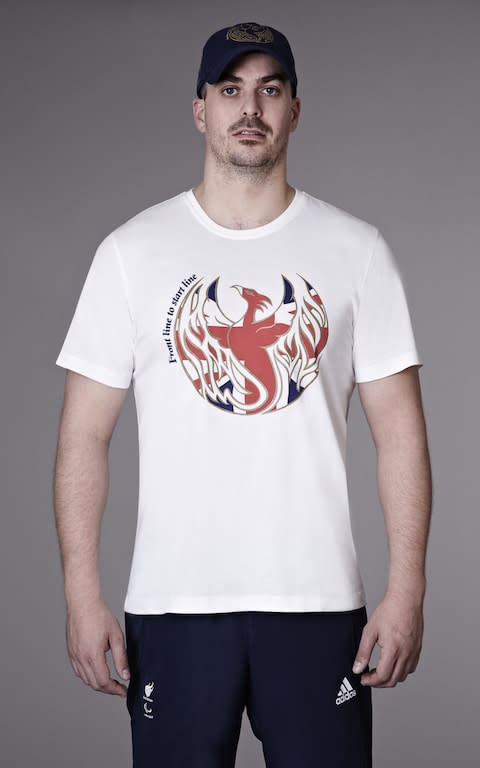
Former army Private who had his legs amputated following meningitis. Competing in wheelchair basketball and wheelchair rugby. ‘Invictus keeps me physically fit and mentally strong, and lets me know that I haven’t been forgotten.’

